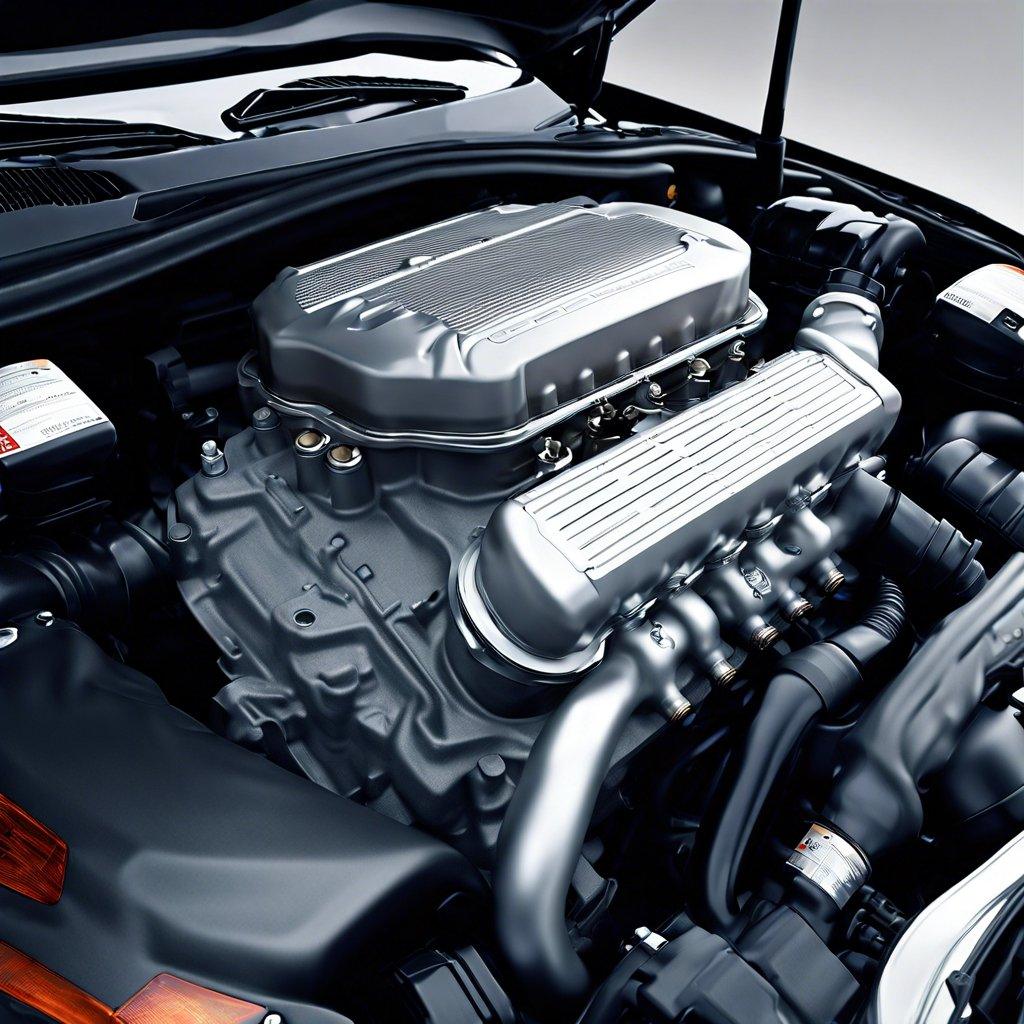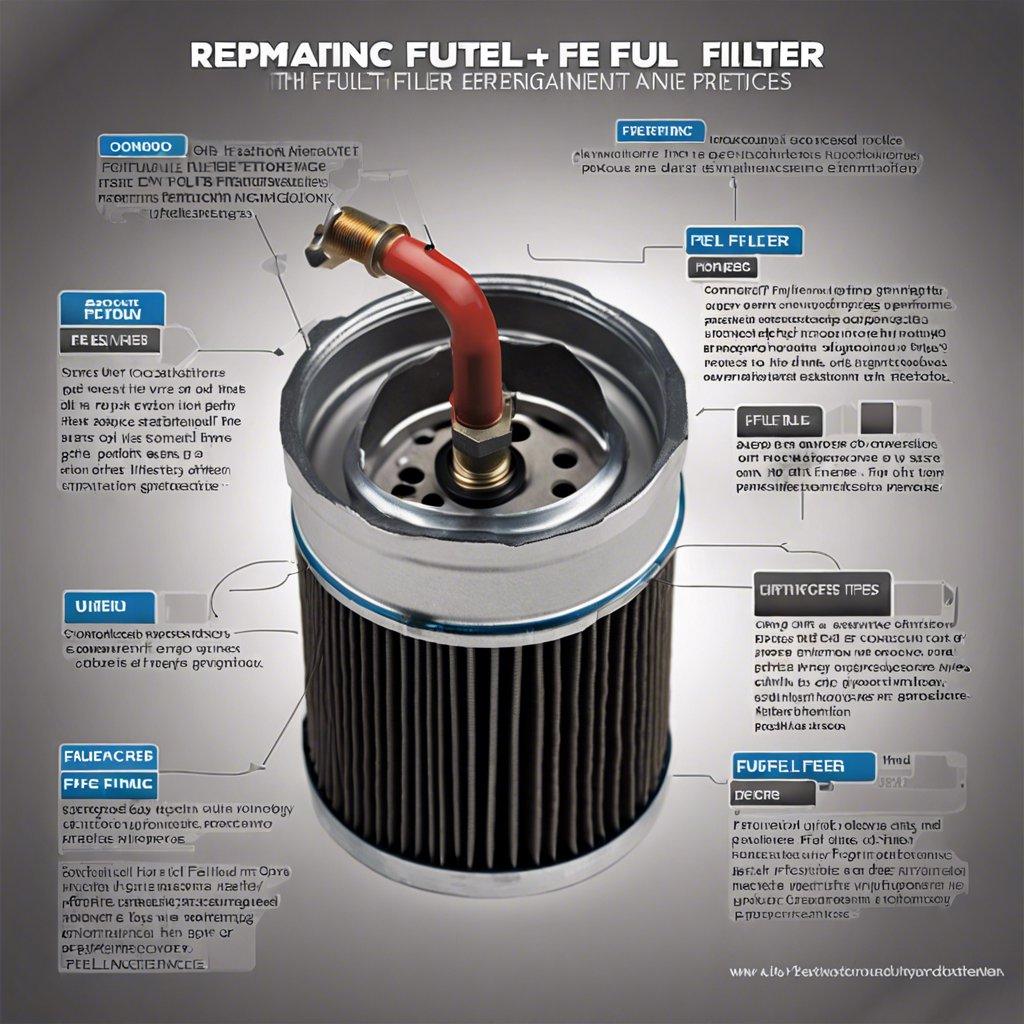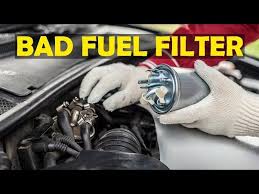Fuel Filter Replacement Timing: Key Considerations
Optimizing Fuel Efficiency: When to Replace the Filter

Maintaining optimal fuel efficiency is crucial for engineering and technology professionals, as it directly impacts operational costs and environmental sustainability. One key factor in achieving this goal is the timely replacement of the fuel filter. This article delves into the key considerations for determining the optimal fuel filter replacement timing to maximize your vehicle’s performance and fuel economy.
Understanding the Role of the Fuel Filter
The fuel filter plays a vital role in ensuring the smooth and efficient operation of your vehicle’s engine. Its primary function is to remove impurities, contaminants, and debris from the fuel before it reaches the engine. Over time, as the filter becomes clogged, it can restrict the flow of fuel, leading to a decrease in engine performance, reduced fuel efficiency, and even potential damage to the fuel system components.
Factors Influencing Fuel Filter Replacement Timing
The optimal fuel filter replacement timing is influenced by several factors, including:
- Driving Conditions: Vehicles operating in harsh environments, such as off-road or high-dust conditions, may require more frequent filter replacements to maintain optimal performance.
- Fuel Quality: The quality of the fuel used can also impact the rate at which the filter becomes clogged. Fuels with higher levels of contaminants may necessitate more frequent filter replacements.
- Mileage: As a general guideline, fuel filters should be replaced every 12,000 to 24,000 miles (20,000 to 40,000 kilometers) or as per the manufacturer’s recommendations.
- Engine Type: Some engine designs may be more sensitive to fuel impurities, requiring more frequent filter replacements to ensure optimal performance and fuel efficiency.
Symptoms of a Clogged Fuel Filter
Identifying the signs of a clogged fuel filter is crucial to maintaining your vehicle’s fuel efficiency. Some common symptoms include:
- Reduced engine power or performance
- Difficulty starting the engine
- Increased fuel consumption
- Irregular engine idling or stalling
Proactive Fuel Filter Replacement
To optimize fuel efficiency and maintain peak engine performance, it is recommended to replace the fuel filter at the intervals specified by the vehicle manufacturer or as indicated by the vehicle’s maintenance schedule. Proactive replacement of the fuel filter can help prevent costly repairs and ensure your vehicle’s continued reliable operation.
| Replacement Interval | Mileage | Driving Conditions |
|---|---|---|
| Typical | 12,000 – 24,000 miles | Normal |
| More Frequent | 8,000 – 12,000 miles | Harsh (off-road, high-dust) |
By understanding the importance of timely fuel filter replacement and the factors that influence it, engineering and technology professionals can optimize their vehicle’s fuel efficiency, reduce operating costs, and contribute to sustainable transportation practices.
Maximizing Engine Performance: Fuel Filter Replacement Timing
Importance of Fuel Filter Replacement
The fuel filter plays a crucial role in maintaining the efficiency and longevity of an engine. It removes contaminants, such as dirt, rust, and other impurities, from the fuel before it reaches the engine’s critical components. Neglecting fuel filter replacement can lead to a range of issues, including reduced fuel economy, decreased engine power, and even engine failure.
Determining the Optimal Replacement Interval
The recommended replacement interval for a fuel filter can vary depending on several factors, including the vehicle’s make, model, and driving conditions. As a general guideline, it is recommended to replace the fuel filter every 12 months or 12,000 to 15,000 miles (20,000 to 24,000 kilometers), whichever comes first. However, it is essential to consult the vehicle’s owner’s manual or a qualified mechanic to determine the specific replacement interval for your vehicle.
Several factors can influence the optimal fuel filter replacement timing, including:
- Driving Conditions: Vehicles operated in harsh environments, such as off-road or dusty conditions, may require more frequent fuel filter replacement.
- Fuel Quality: Fuel with higher levels of contaminants may necessitate more frequent filter changes to maintain engine performance.
- Vehicle Age and Mileage: Older vehicles or those with higher mileage may require more frequent fuel filter replacement due to increased wear and tear on the system.
- Engine Performance: Noticeable changes in engine performance, such as decreased power, reduced fuel efficiency, or difficulty starting, may indicate a need to replace the fuel filter.
Consequences of Neglecting Fuel Filter Replacement
Failing to replace the fuel filter at the recommended intervals can lead to a range of issues, including:
- Decreased Fuel Efficiency: A clogged fuel filter restricts the flow of fuel, causing the engine to work harder and consume more fuel.
- Reduced Engine Power: A restricted fuel supply can result in a loss of engine power and performance.
- Increased Emissions: A clogged fuel filter can lead to incomplete fuel combustion, resulting in higher emissions and potential environmental concerns.
- Accelerated Wear on Engine Components: Contaminants in the fuel can cause premature wear on critical engine components, such as fuel injectors and the fuel pump, leading to costly repairs.
Fuel Filter Replacement Procedure
Replacing a fuel filter typically involves the following steps:
- Locate the fuel filter, which is usually accessible and easy to access.
- Disconnect the fuel lines from the filter, taking care to minimize fuel spillage.
- Remove the old fuel filter and replace it with a new, high-quality filter that meets the manufacturer’s specifications.
- Reconnect the fuel lines and ensure a secure connection.
- Start the engine and check for any fuel leaks or issues.
It is important to note that fuel filter replacement should be performed by a qualified mechanic or someone with the necessary knowledge and tools to ensure safety and proper installation.
Maintaining the optimal fuel filter replacement timing is crucial for maximizing engine performance, fuel efficiency, and the overall longevity of the vehicle. By understanding the importance of fuel filter replacement, the factors that influence the optimal timing, and the consequences of neglecting this maintenance task, engineering and technology employees can ensure their vehicles operate at peak performance and avoid costly repairs.
Preventive Maintenance Strategies: Fuel Filter Change Intervals
Maintaining the integrity of your vehicle’s fuel system is crucial for optimal performance, fuel efficiency, and engine longevity. One key component in this system is the fuel filter, which plays a vital role in removing contaminants and ensuring a clean supply of fuel to the engine. Establishing the right fuel filter change intervals is a critical part of your preventive maintenance strategy.
The recommended fuel filter change interval can vary depending on several factors:
- Driving Conditions: Vehicles operated in harsh environments, such as dusty or off-road conditions, may require more frequent fuel filter replacements to prevent premature clogging.
- Fuel Quality: Lower-quality fuels with higher levels of impurities can lead to accelerated fuel filter fouling, necessitating more frequent changes.
- Mileage: As a general guideline, most manufacturers recommend changing the fuel filter every 30,000 to 50,000 miles, or according to the vehicle’s maintenance schedule.
- Vehicle Age and Usage: Older vehicles or those with high mileage may require more frequent fuel filter changes to maintain optimal fuel system performance.
Failing to replace the fuel filter at the recommended intervals can lead to several problems:
- Decreased Fuel Efficiency: A clogged fuel filter reduces fuel flow, resulting in decreased engine performance and fuel economy.
- Engine Damage: Contaminants passing through a blocked fuel filter can cause damage to critical fuel system components, such as the fuel pump and fuel injectors.
- Decreased Engine Power: A restricted fuel supply due to a clogged filter can result in a noticeable loss of engine power and acceleration.
- Increased Emissions: A malfunctioning fuel filter can contribute to higher vehicle emissions, which can lead to compliance issues and environmental concerns.
Establishing a Fuel Filter Replacement Schedule
To maintain the health and performance of your vehicle’s fuel system, it is recommended to follow the manufacturer’s recommended fuel filter change intervals. However, you may need to adjust the replacement schedule based on the factors mentioned earlier. Regularly inspecting the fuel filter for signs of wear or clogging can also help you determine the optimal replacement timing for your specific vehicle and driving conditions.
By proactively replacing the fuel filter at the right intervals, you can help ensure the longevity of your vehicle’s fuel system, improve fuel efficiency, and prevent costly engine repairs down the line.
Extending Engine Lifespan: The Importance of Timely Fuel Filter Replacement
Understanding the Role of Fuel Filters
Fuel filters play a crucial role in the performance and longevity of an engine. They are responsible for removing impurities, contaminants, and debris from the fuel before it reaches the engine’s fuel system. Proper fuel filtration is essential to prevent premature wear and tear on critical engine components, such as fuel injectors, fuel pumps, and the engine itself.
Recognizing the Signs of a Clogged Fuel Filter
As fuel filters become clogged over time, they restrict the flow of fuel, leading to a range of issues. Some of the common symptoms of a clogged fuel filter include:
- Reduced engine power and performance
- Difficulty starting the engine
- Irregular idling or stalling
- Decreased fuel efficiency
Determining the Optimal Fuel Filter Replacement Interval
The recommended fuel filter replacement interval can vary depending on the vehicle make, model, and driving conditions. As a general guideline, it is recommended to replace the fuel filter:
| Driving Conditions | Replacement Interval |
|---|---|
| Normal driving | Every 30,000 to 50,000 miles |
| Severe driving (e.g., towing, off-road) | Every 15,000 to 30,000 miles |
The Impact of Timely Fuel Filter Replacement
Replacing the fuel filter at the recommended intervals can have a significant impact on the overall performance and lifespan of the engine. Neglecting to replace the fuel filter can lead to:
- Decreased fuel efficiency
- Increased fuel consumption
- Premature wear and tear on fuel system components
- Potential engine damage or failure
Maintaining a proactive approach to fuel filter replacement is essential for extending the lifespan of an engine. By understanding the role of fuel filters, recognizing the signs of a clogged filter, and adhering to the recommended replacement intervals, engineering and technology professionals can help ensure the optimal performance and longevity of their vehicles’ engines.




Post Comment